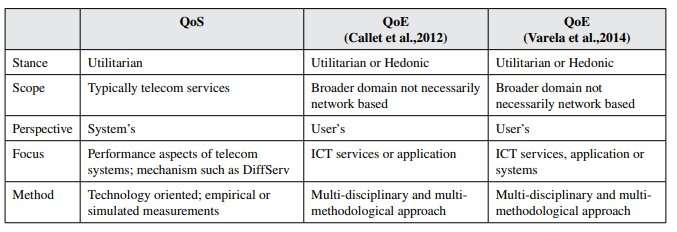Differences and or similarities between the quality of service and quality of experience. Credit: Authors of the study
New research published in the International Journal of Fog Computing has shed light on the importance of quality of experience (QoE) in the field of fog computing, which has traditionally focused on quality of service (QoS). The study highlights the need for fog computing technologies to offer more than just QoS, as the emergence of the internet of things and artificial intelligence has led to a "smart world" where user experience is paramount.
Fog computing, which was first introduced in 2012, has been a key player in addressing QoS issues, but the new study argues that QoE must also be considered to ensure a satisfactory user experience. To better understand QoE, the researchers conducted a systematic literature review, analyzing works that use fog computing to maintain or improve QoE.
The review found that while progress has been made in improving QoE, there are still significant challenges that must be addressed to maintain acceptable levels of user experience. The researchers identified several open research challenges that require intervention, including issues related to scalability, security, and privacy.
Despite these challenges, the researchers remain optimistic about the potential of fog computing to address QoE issues. "Fog computing remains a key technology in the era of smart world and the Internet of Things," the study concludes. "With further research and development, we believe that fog computing can continue to play a critical role in improving the user experience and meeting the needs of users in a variety of contexts."
More information: William Tichaona Vambe, Fog Computing Quality of Experience, International Journal of Fog Computing (2023). DOI: 10.4018/IJFC.317110
Provided by IGI Global
























